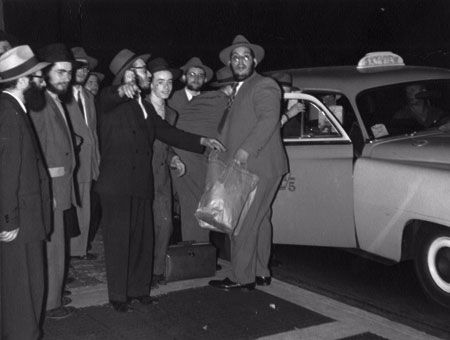
The Roving Rabbis have been roving for a very long time. In fact both my grandfathers participated in the program in the '40s and '50s.
In those days, each pair consisted of an American-born student and one fresh immigrant from Europe, a survivor of the Holocaust or Stalin's brutal regime. As most Jews spoke Yiddish, they had no problem communicating with the people they met. But having an English speaker made it much easier to get around.
One of my grandfathers recalls spending his nights on the hard pews of a synagogue in rural Connecticut, only to be awoken every morning by the transplanted shtetle Jews who would come early in the morning to recite Psalms before dawn. After a few hours of restless sleep, they would travel from farm to farm encouraging the European-Jewish farmers to send their children to Jewish schools.
Another memory is of sitting down in the back of a bus in the Deep South. The two New Yorkers had just settled into their seats when the driver slammed on the brakes and shouted "either y'all get to the front of the bus or you get off!" Segregation was a foreign concept to them.
My other grandfather took the local train (known as the "milk train") from New York to Pittsburgh over the course of a few weeks, stopping in every town. He once told me about meeting Dr. Philip Birnbaum who was then in the final steps of producing what was to become the standard prayerbook of thousands of English-speaking Jews. His new work, which featured a clearly-set Hebrew text and modern English translations, would be a classic, known as "The Birnbaum."
Gone are the days of hard benches, segregation (thank G‑d!), and milk trains. But the heart and soul of the program remain the same: Jewish people connecting to other Jewish people.
RootedRabbi

